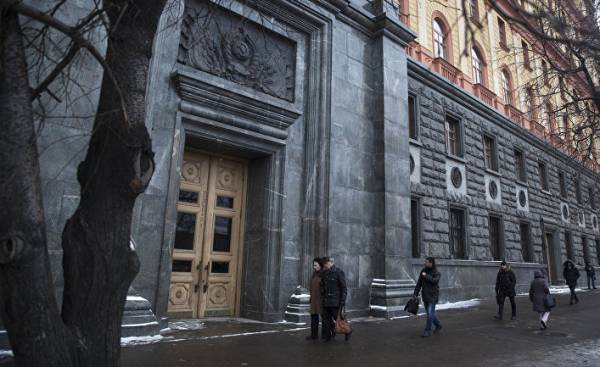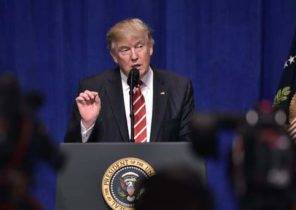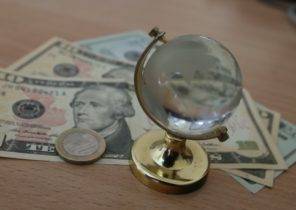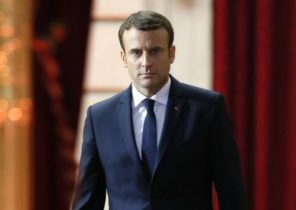
In an exclusive interview with Nettavisen and Ekstra Bladet former KGB officer Vladimir Popov talks about the death threats, intervention in international sports and how he and his family had to escape from Russia to freedom.
We anxiously sit in the open-air restaurant in the canadian city and try to contact the former Lieutenant Colonel of the secret security service of the KGB of the former USSR. Not spent any money of our employers on this trip for nothing?
We can’t contact him via Skype, which was used previously, or the email address of the scout, through which he contacted us. Journalists Nettavisen and Ekstra Bladet has come a long way, to hear the story about Vladimir Popov, officer, 20 years working in the KGB. For 14 years he worked in 11-modele the Fifth Chief Directorate of the KGB. The goal of this unit is to prevent attempts of athletes and heads of sports delegations to escape to the West. This Department also collected intelligence via agents and such employees as Vladimir Popov and his colleagues, during their numerous trips abroad.
Not only this trip to Canada took us a lot of time. We are two desperate journalist, moreover, made a journey into the world of corruption, power, espionage and intrigue of sports.
The trip began with our desire to understand how Russia won the right to host the world Cup in 2018. And now we sit in the canadian city, whose name we promised not to reveal Popov to hear how the KGB recruited agents. We wanted to know how this Committee works, to prevent their athletes to escape to the West during participation in sporting events abroad. We also wanted to know how the KGB operated to hide the use of doping.
Suddenly we get an email message about what can meet up at 10.00 the next day at the specified address. We look at each other, raise a glass with the remnants of good red wine, which helped us to find solace made a toast and preparing for the journey by the secret services of the Soviet Union. We are again full of expectations, after all we will soon write an article.
Name Vladimir Popov surfaced when we came across a book “the KGB plays chess”, published in 2009. Here priests, along with the grandmasters Boris Gulko and Viktor Korchnoi, and the well-known Russian historian Yuri Felshtinsky tells the story of how the KGB in 1981 intervened in the chess competition between Boris Gulko and Anatoly Karpov. They also talk about how the KGB found a way to deal with the President of the International chess Federation (FIDE) Swede Fredrik Olofsson (Fredrik Olafsson) and replaced it with a Filipino Florencio Campomanes (Florencio Campomanos), who apparently was a KGB agent.
The book has many messages and stories about the KGB agents who later gained senior positions in the International Olympic Committee (IOC) and the International football Association (FIFA). We arrived just in time to hear more about these and possibly other events.
The next day we arrive at the address 20 minutes before the agreed time. Not to impress too hard in our pursuit of exclusive stories about the KGB, we’re killing time in the Starbucks coffee shop a few blocks away from the appointed place. We again viewed the questions that were prepared for Popov. Exactly at 10 o’clock we come to the appointed place.
In one of the four leather chairs of the lobby of a tall building, in which we enter, sitting grey-haired, but well kept by a retired KGB officer. He was sitting there 20 minutes ago and saw us. He smiles, leading us to the Elevator, we go up to the third floor and enter the conference room in the middle of the floor, which instead of walls — Windows. All passing by the meeting room can see us, but no one can hear what we say. In spy terms, this is called “exposure”. Here Popov introduces us to the woman he calls his business partner and Advisor.
“Tonight I had an argument with his wife. So I didn’t answer your e-mails and phone calls,” — said Popov with an apologetic smile.
“I’m getting so old I no longer afraid, unlike my wife. “Why do you need this?— she said to me. You shouldn’t meet strangers”. But I have to do it. I have to tell you what I know. I don’t quite know what to do right, but I feel obligated to do it. I have nothing to hide”.
Vladimir Popov says he is not afraid for his life.
“Personally for myself I’m not scared, but I’m afraid of what might happen to my family. We know what happened to the others, betrayed the KGB,” he says.
Business partner and Advisor interrupts our conversation and gets right to the point.
“What will we get for talking with you?” she asks.
We feel confusion and uncertainty. They want to get money? It is clear to us that we can’t pay if they mean it. We say that you can tell the story of Popov, to clarify what was happening in the world of sports in the Soviet Union, and that we therefore can draw more attention to the book in a thousand pages, “Why Putin is Putin,” which, as he told us, he writes.
“I trust you” — said Popov, rejecting an attempt colleagues, and says he doesn’t want any return. He only wants to become famous, his story.
Wants to take the place of Litvinenko
Nettavisen and Ekstra Bladet is the first media with which priests communicate face to face and talks about his past in the KGB.
Popov: I broke all ties with Russia. I don’t talk to journalists from Russia or with journalists who have ties with Russia.
Journalists: Why do you want to tell us your story?
— I want to take the place of Litvinenko and tell how the KGB operated in the Soviet Union, and as the FSB, successor to the KGB, is valid today.
Alexander Litvinenko — a former KGB officer, died a painful death in London in 2006 after the poisoning with radioactive polonium. Murder, the traces of which lead to the President of Russia Vladimir Putin in the Kremlin occurred, in particular, due to the fact that Litvinenko wrote reports about links between Putin and Russia’s crime. The case has led to a diplomatic scandal between Russia and great Britain, and the conflict still continues.
Historian Yuri Felshtinsky had helped Litvinenko to carry out the difficult trip from Sochi via Georgia and Turkey to London.
Later on Vladimir Popov contacted Felshtinsky, to tell him that the KGB put his name in the “list of death”. In addition, Popov wanted Felshtinsky wrote his story. The result was a book “the KGB plays chess”.
After Litvinenko was poisoned in London, but before his death, I began writing about my work as a KGB officer. So I turned to Yuri. At first it was a short letter, but then I sent a long letter about his position. So began our book project.
— You met with Litvinenko?
— No. Never.
The attempt
During the conversation, we feel that the priests are deeply and strongly hates the KGB. He says he tried several times to escape from his sticky hands.
Three times I tried to quit the KGB, but this has not been possible. If I had left the KGB, then this would have serious consequences for me and my family. If you go the KGB or throw you out, you will never be able to find a job. The same thing would happen with family members who had resigned.
So I had to wait for a period of 20 years. It happened in 1991. Then I finally resigned from the KGB.
After that I started to do business in Moscow. I, in particular, helped others to import goods from abroad. I understand that Russia will never be better. Several times I have been contacted my colleagues from the KGB and asked me to come back to the Committee and to re-establish his work. But I didn’t want to.
So some of my colleagues tried to kill me because I betrayed the KGB.
— How?
— They tried to knock me down car that was attack with a knife, was trying to push me onto the subway tracks. Fortunately, I managed to avoid those attacks.
Popov shows us a scar on the fingers after the assassination attempt with a knife.
— Who did it?
— It was the people hired by my colleagues. It all happened in Moscow in the 1992-93 year.
After a failed attempt to go to the United States in 1994, he managed in 1996 to obtain a visa to Canada through a travel Agency in Moscow. But life in Canada was not exactly what he imagined.
“I got refugee status, but two years have not seen my family. I was here alone and didn’t know if I’ll ever see ever for his family. I thought a lot about how they live in Moscow,” he says.
According to Popov, in his native country, life was hard.
“The KGB tried to kidnap my son to scare my wife, my mother tried to intimidate someone tried to kill my nephew because he like me, and a neighbor was killed. It was a sad time,” — said Popov with a sad expression.
— I was planning to take my wife and son. Before we left Russia and we had passports. My wife is on vacation, booked a trip to Disneyland in Florida but instead flew to Seattle and from there to Canada. The guards she told me that I had refugee status. My wife and son first received permission for permanent residence and later citizenship.
And here I am — trapped. As a former officer of the KGB, I can’t obtain canadian citizenship. I have refugee status, and I can’t get your own passport. So I was banned from leaving Canada. But if I hadn’t left Russia, I would probably today would be dead. The KGB has a code of honor — exactly the same as in the SS (the former military organization of Germany).
— Why you wanted to kill?
Because I gave the KGB and because I don’t want to help them to regain the power of the Committee. In Soviet times, the KGB worked 8 thousand people.
Refused the offer of lunch
We — all four of them sitting in a glass cage on the third floor of the building in the canadian city, is starting to feel tired from all these stories about the secret activities of the KGB and decide to meet again the next day. As a courtesy we invite Popov and his business partner for lunch.
— No, thank you. Don’t take this for rudeness, you just have to understand that I have to be careful.
— Can we get a bite first?
— Remember that Litvinenko when he was poisoned, drank tea with the two people he considered his friends.
So every day you take such precautions?
— Not every day. But when I meet new people, I have to be careful. You never know what can happen.
When we went outside, started raining, and the priests invited us to use his umbrella.
“No, thank you. KGB and umbrellas — a bad combination. At the time, many died from these umbrellas” — we say and smiled slyly.
We agreed with Popov about the meeting the next day.
Vladimir Popov: So I was recruited to the KGB
When the priests learned, he was contacted by the KGB. They wanted to recruit him and asked him to tell me that he could do for the Soviet Union. Treatment he did not like.
— I studied law and graduated from the second year of University, when I received a letter from the KGB, in which I asked about their desires for the future. The KGB believed that my duty of a citizen of the Soviet Union was to tell them that I could do for the country. I was not interested, because I wanted to be a scientist. I wanted to continue studying in the third year of the law faculty and have done a lot with his coursework.
But the KGB insisted that I told about what I can do for the country, and said that my duty is to protect the homeland. Thinking I made a big mistake.
According to Popov, the representatives of the KGB said that he had one year to work in the KGB and then decide whether they are suitable for service in a secret organization. It was in 1972.
“I agreed to work there for a year, and my first job in the KGB was working in the Secretariat, where I did a lot of paperwork. I carried archival materials for all departments that needed the information. A year later I was summoned to the KGB to continue recruiting, and I told them that I’m not interested in working here. But I was told that I was already in the Committee and should continue. So the KGB recruited young people,” he said.
— Why they wanted that you worked there?
— No matter what I did, starting from the age of 15, when I was doing some work and when I was in the army, I always struggled trying to do their job well. I didn’t want to look stupid and so did the best I could.
The Committee so well I just did my job, they decided to leave me.
Vladimir Popov with a smile says about why he’s the next 20 years remained in the KGB: “at First, I was assigned a Junior officer rank and assigned to check people who wanted to leave the Soviet Union on official business. And this work I have performed very well. Two years later I was sent to the fifth division in the field. I’ve been charged with writers and poets”.
Gradually, the job became more serious. The Soviet Union won the right to host the summer Olympics in Moscow in 1980, Soviet authorities needed a large intelligence apparatus to ensure security at the Olympic games. So in 1977 in the Fifth main Directorate of the KGB was created the 11th division, which had to deal with security issues at the Olympics.
“I was sent to this Department in September of 1977 and my first task of the KGB was the European championship in shooting in Copenhagen in 1978,” he said.
To participate in these trips, it was very interesting, because it gave the opportunity to buy Western goods, which was extremely difficult to buy in the Soviet Union. It could be expensive carpets, electronics and tape recorders. Often we sold it on the black market after returning home.
Listening to Popova, one might think that the political elite of the Soviet Union was not quite satisfied that the country won the right to host the Olympics.
“The Olympics were very expensive! Leonid Brezhnev, General Secretary of the Communist party, was furious when he was told how much money was spent on these games.”Whose idea this was?” he shouted,” — said Popov and laughs out loud.
“But we won a lot of gold, and in the leadership of the Soviet Union it was viewed as a success. Of course, it was a serious Western boycott which was a response to the Soviet Union’s invasion of Afghanistan in 1979, and because of corruption and the use of doping. Remember that it was an Olympics without a single positive sample for doping,” – said Popov and smiles slyly.
After the Olympics in Moscow Vladimir Popov continued to travel with the Soviet athletes and leaders.
A former Lieutenant Colonel Vladimir Popov participated as a KGB officer in five Olympic games. His main goal was to make it so that no athlete or Manager is not fled to the West.
During the winter Olympics, he was accompanied by a team of legendary Soviet hockey players. He told Nettavisen and Ekstra Bladet about the great power of the KGB over athletes.
The KGB strived to make Samaranch became IOC President
In Norway, a former International Olympic Committee President Juan Antonio Samaranch (Juan Antonio Samaranch) is primarily known for his phrase, “the best winter Olympic games” in history is the Olympic games in Lillehammer in 1994. Then only a few knew that he was probably a KGB agent.
“I was a KGB telegram to all secret services of the Warsaw Pact, that they contributed to the election of Juan Antonio Samaranch President of the IOC,” — says Vladimir Popov.
Now he tells us about how the KGB at the time, if you believe him, was recruited by IOC President Juan Antonio Samaranch as their agent.
In July 1980, Juan Antonio Samaranch was elected IOC President at the 83rd IOC session in Moscow. Together with Samaranch ran four candidates: a lawyer from Canada Jim Worrel (Jim Worral), one of the main organizers of the Olympic games in Munich in 1972, Willie Daume (Willi Daume), President of the International skating Union, Swiss mark Hodler (Hodler Marc) and head of TV New Zealand’s lance Cross (Lance Cross).
Samaranch at the time was 60 years, and it is quite little written in the international media. In the period between 1977 and 1980 he was the first Spanish Ambassador in the Soviet Union and the IOC received in 1966 by IOC President American Avery Brundage (Avery Brundage), although it was contrary to the rules of the IOC. In 1966 were not allowed to have more than one IOC member from the country where the Olympic games were held. At that time, Spain has never held the Olympics, however, Spain’s IOC was more than one representative.
From 1974 to 1978-th year, Samaranch was a Vice President of the IOC, when he was elected President of the IOC, he was the chief of Protocol of the IOC. It is considered that he was elected President of the IOC for the work on this post and good relations with the Olympic committees in the West and in the East.
“Juan Antonio Samaranch was recruited as a KGB agent in the 1980’s, he was caught when he tried to smuggle out of the Soviet Union Russian icons. In the USSR it was strictly forbidden. He got the icons from an extremely nationalist-minded artist Ilya Glazunov, who organized a club of artists, intellectuals and other friends. Juan Antonio Samaranch often visited the club. When it happened, Samaranch was Spanish Ambassador in Moscow”, — he said.
Juan Antonio Samaranch was very interested in Russian art and Russian culture, and got a few pictures from the scandalous Russian artist. The KGB watched Samaranch, who did not know that the KGB for many years before Glazunov’s recruited as an agent. Therefore, it was revealed his attempt to smuggle icons.
Samaranch was given a choice of arrest and punishment or cooperation with the KGB. He chose the latter. When Samaranch was recruited, we used large resources in order to be elected IOC President,” — said Popov.
According to a former KGB officer, he played a major role in the election of the President of the IOC.
“I made up the top-secret telegram sent the KGB, the Stasi (secret police in the former East Germany) Securitate (the secret police of Romania) and other secret services of the Warsaw Pact countries, so they forced their representatives to vote for Samaranch during the IOC session in Moscow before the Olympics. Samaranch was elected President of the IOC and became an important person for the KGB and the Soviet Union. The Soviet Union and later Russia wanted to show the world that we were a great sporting nation that we could win many gold medals and that we could carry out large sporting events, and in this he had to help us. At the same time, he could give us diplomatic information from Spain,” says Popov.
At a time when Samaranch was elected IOC President, the KGB already had in your IOC Vice-President. Vitaly Smirnov, head of the Russian Olympic Committee, was in 1978 the KGB recruited one of my colleagues, Vladimir Popov in the Fifth main Directorate of the KGB. Previously been talking about the fact that Smirnov was a KGB agent. These statements can be found in the book “the KGB plays chess”.
— What exactly Samaranch did for the KGB?
— He worked Second chief Directorate, but I know that he had access to top secret telegrams that he received from the Minister for foreign Affairs of Spain, and that he had contact with the ambassadors in NATO (Spain became member of NATO in 1982, approx.ed.). However, I don’t know what he was doing.
— You in the book “the KGB plays chess” has written a small passage about how the KGB recruited Juan Antonio Samaranch before the games in Moscow in 1980. As a family Samaranch responded to these allegations?
— First I was contacted by his Secretary, who threatened a lawsuit, and later came Samaranch Jr. (who currently holds one of the main posts in the IOC — approx.ed.) and threatened to do the same. I just shrugged them off and said that only told the truth and not invented. It’s accurate facts.
Samaranch is said to have maintained a close friendship with Ilya Glazunov. Immediately after he was elected President of the IOC, he asked Glazunov to paint a portrait of Monica Berliu (Monique Berliou — the first female Secretary General of the IOC, the former President and the Minister of sport of France). She has been a close partner Samaranch and collaborated with him in the IOC, when he moved to Lausanne in Switzerland in 1980.
According to an article in Sports Illustrated, published in 1981, this portrait was hanging together with dozens of Russian icons in the apartment, which the IOC has granted Berliu. Long after the Soviet Union broke up, and Juan Samaranch resigned as President of the IOC, Samaranch has maintained friendly relations with Glazunov.
When in 2009, thanks to the book “the KGB plays chess”, it became known that Samaranch was recruited by the KGB, the IOC has criticized these statements and called them malicious rumors.
We also contacted the IOC and asked about all the claims that the priests made in an interview with Nettavisen and Ekstra Bladet. Head of public relations for the IOC, Emmanuelle Moreau wrote in an email that the allegations have no credible evidence.
We also contacted Ilya Glazunov, to hear his version about the friendship with Juan Antonio Samaranch, but received no response.
KGB in the IOC and FIFA
When Vladimir Popov worked in the KGB, the Committee has used enormous resources to strengthen its influence in international sports organizations.
Copenhagen occupies an important place in the life of Vladimir Popov. In 1978, his first trip abroad was a trip to the Danish capital. The pretext was the European championship on shooting in the House of sport in Brondby. It was the event in which the Soviet team won many medals.
During this trip he is said to have recruited doctor Gennady Markov. In 1980, mark became the head of doping control for the Olympic games in Moscow.
As a number of countries boycotted the games because of the Soviet invasion of Afghanistan in 1979, the Olympics was a great triumph of the Soviet team, which has won 80 gold medals. But in the Soviet Union, very few knew about how he won these medals. In the Olympic doping center in Moscow, the head of which was Markov, the Soviet a positive doping test changed to negative just as it happened during the Olympics in Sochi in 2014.
Olympics in Moscow in 1980 was the “cleanest” of all the Competitions held earlier. Positive samples Western athletes were also replaced. This was done in order not to create problems themselves. It would be strange if no Soviet athlete was caught caught was the only Western athletes.
Nettavisen and Ekstra Bladet tried several times to contact the sports Committee in Moscow, to receive comments Markov. The Moscow mayor’s office Nettavisen publications and Ekstra Bladet confirmed that he was the Director of the medical Institute in Moscow until his death and died from cancer in 2010. Markov did not comment on the case.
But the Russians, according to Popov, also likely used his influence in other spheres of international activities. It was not only Juan Antonio Samaranch, the IOC President, who, as stated, was influenced by the KGB. The Committee may also monitor and Vice-President the IOC Vitaly Smirnov.
The priests in the book “the KGB plays chess” talks about how the head of the Soviet Olympic Committee Vitaly Smirnov was recruited by major General of the KGB Ivan Abramov in 1978. Smirnov was Vice-President of the IOC until 2006 and is currently its honorary member.
Smirnov and Samaranch, probably. worked closely for many years. This may be one of the reasons that Smirnov only once received a warning from Samaranch after a corruption scandal in connection with the Winter Olympics in salt lake city in 2002. A number of IOC members were punished for accepting bribes. Smirnov, in particular, was accused that he received money and a very expensive hunting rifle.
Nettavisen contacted the IOC in connection with the statements Popova, but the IOC denied the accusations against Smirnov, calling them baseless. In an email from the IOC, it was reported that these allegations cannot be confirmed.
— For Russia, it remains important to control high-ranking persons in international sports organisations?
— Of course, but not only in sports. This applies to politics and to society as such.
— So you think that ex-KGB agents still working, for example, with the IOC?
— Yes, there are former KGB and FSB officers or other representatives of the Russian security services.
They are still involved in the Affairs of sports?
— Absolutely.
— Everywhere?
— Absolutely.
— Can you tell us what Russia is doing, when representatives of international organizations come to Russia? Where they are placed? For example, the President of the IOC or FIFA?
— This applies not only to the well-known representatives of sports organizations. All persons of interest to the KGB, and now FSB, get hotels special rooms, the so — called “numbers plus”. The rooms are fitted with surveillance cameras, microphones and listening systems telephones. The security service is fully in control of what is happening in these rooms. Everything is recorded and everything is analyzed so that the security service could then use this information. This is sometimes used against her.
— We are talking about how to compromise important persons and then set control over them?
— Absolutely. The idea is to get any incriminating information about them. But not only that. We can also talk about the work on improvement of image of Russia. All kinds of information useful for security.
— So you’re sure that Samaranch when he was the IOC President, Sepp Blatter (Sepp Blatter), when he was FIFA President, Thomas Bach (Thomas Bach), who is now the President of the IOC, and Gianni Infantino (Gianni Infantino), which is currently the FIFA President, lived in the “special rooms” in Moscow?
— Yes, of course. Let me give you an example of how we used these numbers. We could tell any person that if he wants to help us, we must receive money for his work. This man came back to my room and called someone to talk about our offer. All that was said in this conversation, we could use later. It is guaranteed that he told it to someone on the phone or to someone else who was in this room.
— It was common practice?
— Yes, the idea was to gather all sorts of information.
— Do you think that Russia has used such methods to obtain the right to host the world Cup in 2018?
— Yes, I think so. Russia has applied for hosting two big sports events: the Olympics in Sochi and the FIFA world Cup. And it was clear that she was not ready for such work. Sochi is located in the tropical zone, and there was no infrastructure. However, Russia held the right to the winter games. The same applies to the world Cup in 2018. There were problems with the stadium, it’s a disaster. But as I said, one man, big money can open the large doors,” — said Popov in conclusion, smiling.
Sunday July 2 rehearsal for the world Cup in Russia has ended with a victory in the final of Germany over Chile 1:0. After the tournament, President of FIFA, Gianni Infantino praised the host country. Before there were fears that the game will not be of great interest to be bullies, violence and racism, but nothing happened, said NTB.
“We did not see anything. No unpleasant episodes, everything went well, it was great. If it looks like the problem tournament, I’ll be happy to see such problematic events as it was a great success,” said Infantino.
The head of FIFA also stated that he liked the wonderful stadiums, great games and the number of viewers — about 38 thousand on one game. He was also very happy with the use of justices of the video. This method is tested on the confederations Cup “dress rehearsal” of the world Cup.
The historian pulled out of Alexander Litvinenko from Russia
“Dear Mr. Felshtinsky! I am writing to You after much thought about my fate and the fate of all who had left Russia for various reasons in 90-ies… I appeal to you not only because You cooperated with Alexander Litvinenko, murdered in London in November 2006, and not just because you want to not remain indifferent to the fact that I have to tell you. But because I have information that the FSB for your own records and your life is in danger” — the former KGB Lieutenant Colonel Vladimir Popov begins his letter which he sent to the Russian historian Yuri Felshtinsky 15 July 2007.
Yuri Felshtinsky known mainly to those that helped the former KGB officer Alexander Litvinenko escape from Russia to the UK. However, he also wrote many books on Russian history and the struggle of power and conscience in particular, “the Defeat of the world revolution” (The Failure of the World Revolution, 1991), “Blowing up Russia” (Blowing up Russia, Alexander Litvinenko, 2007), the Age of assassins (The Age of Assassins), the Rise of Vladimir Putin (The Rise and Rise of Vladimir Putin, 2008), “Corporation (The Corporation), Russia and the KGB in the age of President Putin (2009 Russia and the KGB in the Age of President Putin).
Letter Popova was the beginning of cooperation between Felshtinsky and Popov, which led to the appearance of the book “the KGB plays chess”, published in 2009.
When Nettavisen and Ekstra Bladet tell Yuri Felshtinsky that Vladimir Popov wants to take on the role of Alexander Litvinenko, Yuri Felshtinsky reacts in the following way: “Yeah, right, so we started our cooperation. When Litvinenko was poisoned and later died, Popov contacted me via email, I keep these e-mails. The priests wrote that he regretted the murder of Litvinenko in London, but also that he was a Colonel of the KGB and that he has information for me. It was a long time before I got the confirmation that he is who he says he is. I didn’t believe him. First he told me neither his name nor place of residence. At that time, I received many emails from strange people from the former Soviet Union, who wanted to contact me to write their story.”
Gradually everything became clear. Felshtinsky received the necessary confirmation.
“I asked if he could send me the documents or evidence proving his identity. Suddenly, he gave me a very unusual order, due to which I got a confirmation of who the priests were actually,” he says.
Popov said that there is one person who knows who he was and who was with him when he was a KGB officer. This man was a grandmaster Boris Gulko. Popov told me, so I contacted him and asked him about how he was arrested on Arbat street in Moscow and how for long hours harshly interrogated. He confirmed that Popov’s telling the truth.
I called Gulko and told him the story. He confirmed her. Gulko also said that thought about how to kill a man who questioned him because he was completely unbearable. “I feel bad that such people as he had left Russia and now live peacefully in another place, said Gulko”, he added.
After a conversation with Gulko Felshtinsky called Popov and told him about this conversation. Gulko also told him that he was angry at Popova after questioning by the KGB.
“Then the priests said that during interrogation he played the role of good COP. Then I realized who he was, and we began a collaboration. This led to the creation of the book “the KGB plays chess”, where we are talking about chess Gulko, followed by chasing KGB officer Vladimir Popov” he said.
Vladimir Popov wanted to tell their story, when Alexander Litvinenko was murdered, and said he wanted to take his place in the role of fighter for the truth from the corridors of the KGB. But Felshtinsky said that between Litvinenko and Popov is a big difference.
“Litvinenko was an operational intelligence officer, while the priests were engaged in recruitment of agents and spying on Soviet citizens. During my work with Litvinenko I often catch him in a lie. It was part of the game that he played as a KGB officer.
Litvinenko wanted to depose Vladimir Putin. If it meant to lie, he lied. The priests never participated in the struggle with Putin in contrast to Litvinenko. I never Popova caught in a lie. He might say that he did not know what to say something that is not true, that’s my impression,” said Felshtinsky.
— So, when he tells us one incredible story after another, we can trust him?
— Yes! He had never wanted to attract attention, as did Litvinenko. You are the first journalists with whom he meets face to face.
It says a lot about Popov.
— So, when he calls the people that were recruited, when he tells how they were recruited, when he tells stories about the attempts of assassination, then we can believe him?
— 100%.
— If Popov puts himself in danger when he tells us his story?
— Of course. All officers of the KGB, revealing the names of the agents and methods of work, expose themselves to great danger. It threatens death. But he already did that in the book written by us, and I don’t think that the danger for him will grow if more he will tell you.
At the same time, I was under the impression that priests transmit the KGB. When we published our book about chess, the publisher has received an order from the headquarters of the KGB. The Committee wanted to buy all the books. This was either due to the fact that the Committee decided to use the book in their work, or due to the fact that they decided to buy up all circulation, not allowing others to read this work. It ended up that we printed a new edition,” concluded Felshtinsky.







